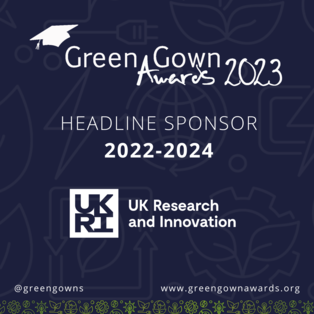Displaying 161–180
of 184 results | View 20
50
100
per page
-
Web Page
A toolkit to provide pathways that will lead us to a clean, safe and energy healthy 2050 developed by the DECC
Tags:
energy | carbon | emissions | climate change
-
PDF
An edited excerpt of the former Wales environment minister's ‘A small country with big sustainability ambitions,’from the ENDS Annual Lecture 2011.
Tags:
carbon | environment | 2011 | wales | minister
-
PDF
EAUC Member responses about the use of electric heaters by staff for supplementary heating.
Tags:
energy | carbon | heating | insulation | electric | radiator
-
Web Page
This links to asection of the BREEAM website includes case studies on buildings certified to the BREEAM standard.
Tags:
energy | carbon | construction | efficiency | renovation
-
PDF
A research report to the Department for Environment, Food and Rural Affairs by the Stockholm Environment Institute and the University of Sydney.
Tags:
carbon | emissions | Sydney | indicator | stockholm
-
Web Page
Different carbon prices between regions are likely to persist for many years - this report presents alternative solutions to the carbon leakage problem.
Tags:
carbon | trust | leakage
-
Web Page
Salix has worked with 725 clients across the public sector, including local authorities, central government, schools, universities and colleges and NHS trusts.
Tags:
carbon | recycling | reduction | lighting
-
Web Page
Salix has worked with 725 clients across the public sector, including local authorities, central government, schools, universities and colleges and NHS trusts.
Tags:
carbon | reduction | lighting
-
Web Page
A Carbon Trust report on how non-domestic buildings can play a leading role in the UK's transition to a low carbon economy.
Tags:
carbon | emissions | buildings | low | reductions
-
Web Page
The AUDE Toolkit for a Sustainable Estate consists of tools and guidance. It assists estates professionals make best use of the physical assets of their university.
Tags:
carbon | emissions | sustainable estate
-
PDF
EAUC Member responses about advice on the options for cooling IT server rooms.
Tags:
energy | carbon | ICT | reduction | data | cooling | centre
-
PDF
EAUC Member responses regarding use of meter data to encourage behaviour change by staff and/or students.
Tags:
energy | carbon | change | NUS | data | behaviour | meter
-
Web Page
Salix has worked with 725 clients across the public sector, including local authorities, central government, schools, universities and colleges and NHS trusts.
Tags:
carbon | emissions | reduction | finance
-
Web Page
This guide introduces two types of carbon footprinting that affect businesses.
Tags:
energy | carbon
-
Web Page
This overview covers the main energy saving opportunities in lighting and presents low-cost measures without compromising working conditions.
Tags:
energy | carbon | lighting | technology | trust | saving | low
-
PDF
This document aims to help public bodies access potential sources of energy efficiency and renewable energy finance and to assess the costs, risks and benefits of doing this.
Tags:
energy | carbon | efficiency | business | finance | risk | case | renewable | cost
-
Web Page
Examples of carbon reduction strategies, plans and initiatives from a number of universities.
Tags:
energy | carbon | strategy | reduction | technology | Plan
-
Word Document
A response from the University and College Union on meeting the low carbon skills challenge
Tags:
carbon | skills | consultation | challenge | low | ucu
-
Web Page
A summary from HEFCE for measuring scope 3 carbon emissions
Tags:
carbon | emissions | reduction | scope3 | indirect
-
PDF
This document from HEFCE offers guidance for institutions on producing individual carbon reduction strategies, targets and associated carbon management plans.
Tags:
energy | carbon | reduction | CMP





 Except where otherwise stated, content on this site is
licensed under a Creative Commons Attribution 3.0 License.
Except where otherwise stated, content on this site is
licensed under a Creative Commons Attribution 3.0 License.
